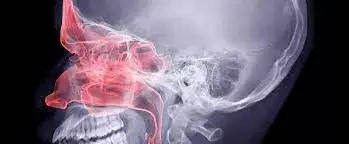- Home
- Medical news & Guidelines
- Anesthesiology
- Cardiology and CTVS
- Critical Care
- Dentistry
- Dermatology
- Diabetes and Endocrinology
- ENT
- Gastroenterology
- Medicine
- Nephrology
- Neurology
- Obstretics-Gynaecology
- Oncology
- Ophthalmology
- Orthopaedics
- Pediatrics-Neonatology
- Psychiatry
- Pulmonology
- Radiology
- Surgery
- Urology
- Laboratory Medicine
- Diet
- Nursing
- Paramedical
- Physiotherapy
- Health news
- Fact Check
- Bone Health Fact Check
- Brain Health Fact Check
- Cancer Related Fact Check
- Child Care Fact Check
- Dental and oral health fact check
- Diabetes and metabolic health fact check
- Diet and Nutrition Fact Check
- Eye and ENT Care Fact Check
- Fitness fact check
- Gut health fact check
- Heart health fact check
- Kidney health fact check
- Medical education fact check
- Men's health fact check
- Respiratory fact check
- Skin and hair care fact check
- Vaccine and Immunization fact check
- Women's health fact check
- AYUSH
- State News
- Andaman and Nicobar Islands
- Andhra Pradesh
- Arunachal Pradesh
- Assam
- Bihar
- Chandigarh
- Chattisgarh
- Dadra and Nagar Haveli
- Daman and Diu
- Delhi
- Goa
- Gujarat
- Haryana
- Himachal Pradesh
- Jammu & Kashmir
- Jharkhand
- Karnataka
- Kerala
- Ladakh
- Lakshadweep
- Madhya Pradesh
- Maharashtra
- Manipur
- Meghalaya
- Mizoram
- Nagaland
- Odisha
- Puducherry
- Punjab
- Rajasthan
- Sikkim
- Tamil Nadu
- Telangana
- Tripura
- Uttar Pradesh
- Uttrakhand
- West Bengal
- Medical Education
- Industry
Temperature-controlled radiofrequency neurolysis of posterior nasal nerve benefits patients with chronic rhinitis

Temperature-controlled radiofrequency neurolysis of posterior nasal nerve benefits patients with chronic rhinitis suggests a new study published in the Laryngoscope
A study was done to assess the long-term safety and effectiveness of temperature-controlled radiofrequency (TCRF) neurolysis of the posterior nasal nerve (PNN), a minimally invasive treatment for chronic rhinitis.
A prospective, single-arm study of 129 patients at 16 centers (United States, Germany) was conducted. Patient-reported outcome measures were the 24-h reflective total nasal symptom score (rTNSS) and mini rhinoconjunctivitis quality of life questionnaire (MiniRQLQ). Postnasal drip and cough symptoms were assessed using a 4-point scale.
Results
The mean pretreatment rTNSS was 7.8 (95% CI, 7.5–8.1). The significant rTNSS treatment effect at 3 months (−4.2 [95% CI, −4.6 to −3.8]; p < 0.001) was sustained through 2 years (−4.5 [95% CI, −5.0 to −3.9]; p < 0.001), a 57.7% improvement. At 2 years, the proportion of patients with a minimal clinically important difference (MCID) of ≥30% improvement in rTNSS from baseline was 80.0% (95% CI, 71.4%–86.5%). Individual postnasal drip and cough symptom scores were significantly improved from baseline through 2 years. The proportion of patients who reached the MCID for the MiniRQLQ (≥0.4-point improvement) at 2 years was 77.4% (95% CI, 68.5%–84.3%). Of 81 patients using chronic rhinitis medications at baseline, 61.7% either stopped all medication use (28.4%) or stopped or decreased (33.3%) use of ≥1 medication class at 2 years. No device/procedure-related serious adverse events were reported throughout 2 years.
TCRF neurolysis of the PNN resulted in sustained improvements in chronic rhinitis symptom burden and quality of life through 2 years, accompanied by a substantial decrease in medication burden.
Reference:
Lee, J.T., Abbas, G.M., Charous, D.D., Cuevas, M., Göktas, Ö., Loftus, P.A., Nachlas, N.E., Toskala, E.M., Watkins, J.P. and Brehmer, D. (2023), Two-Year Outcomes After Radiofrequency Neurolysis of Posterior Nasal Nerve in Chronic Rhinitis. The Laryngoscope. https://doi.org/10.1002/lary.31120
Keywords:
Temperature-controlled, radiofrequency, neurolysis, posterior, nasal, nerve, benefits, patients, chronic rhinitis, Lee, J.T., Abbas, G.M., Charous, D.D., Cuevas, M., Göktas, Ö., Loftus, P.A., Nachlas, N.E., Toskala, E.M., Watkins, J.P. and Brehmer, D, Laryngoscope
Dr. Shravani Dali has completed her BDS from Pravara institute of medical sciences, loni. Following which she extensively worked in the healthcare sector for 2+ years. She has been actively involved in writing blogs in field of health and wellness. Currently she is pursuing her Masters of public health-health administration from Tata institute of social sciences. She can be contacted at editorial@medicaldialogues.in.
Dr Kamal Kant Kohli-MBBS, DTCD- a chest specialist with more than 30 years of practice and a flair for writing clinical articles, Dr Kamal Kant Kohli joined Medical Dialogues as a Chief Editor of Medical News. Besides writing articles, as an editor, he proofreads and verifies all the medical content published on Medical Dialogues including those coming from journals, studies,medical conferences,guidelines etc. Email: drkohli@medicaldialogues.in. Contact no. 011-43720751


